Hungary
On the occasion of the International Biodiversity Day, Hungary decided to join the Promote Pollinators Coalition by signing the Declaration of the Willing on Pollinators.
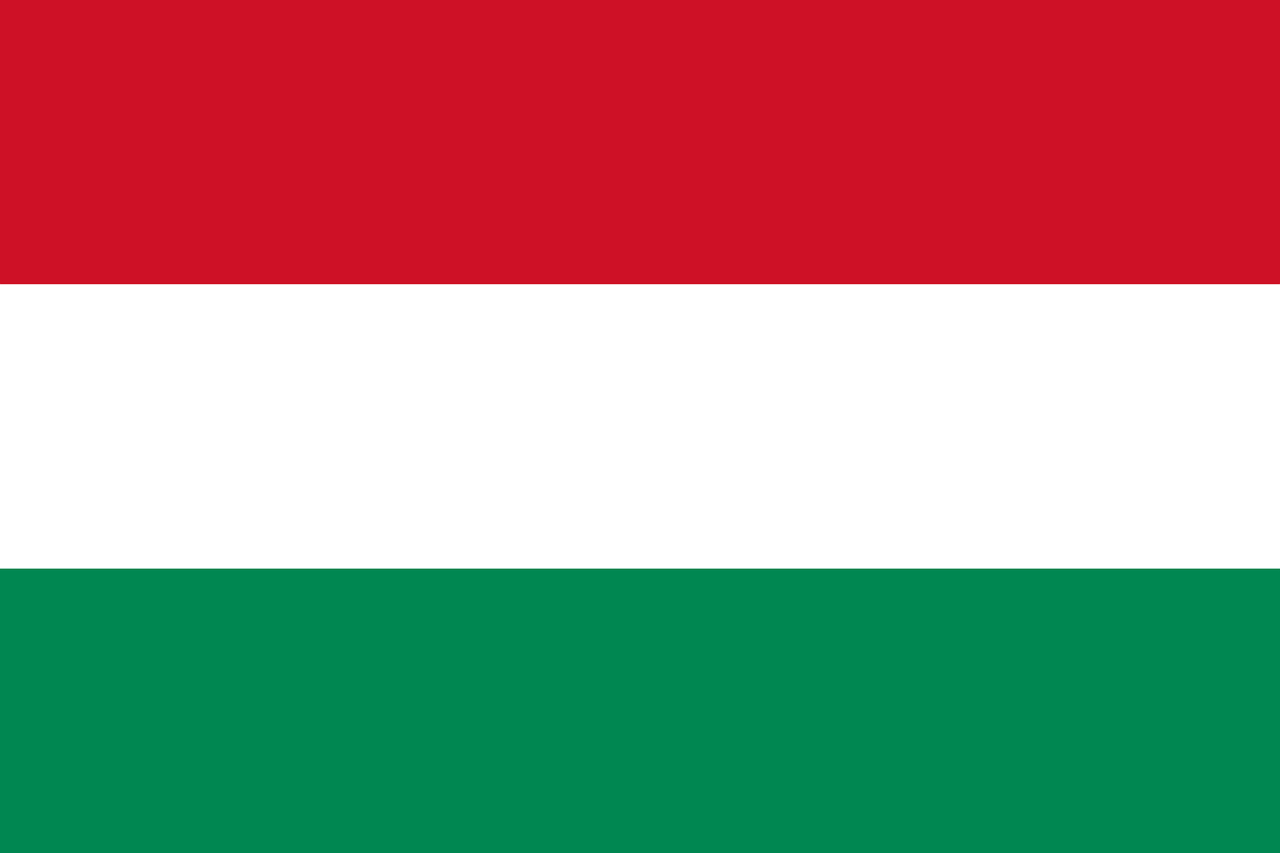
Why did Hungary decide to join the coalition?
Hungary considers the protection of pollinators highly important, as these insects provide an essential ecosystem service that is also crucial for human life and wellbeing. While it is critical for the continued functioning of natural ecosystems, pollination has a fundamental role in agricultural production, so its importance for food security is unquestionable for Hungary.
Given the increasing focus on the values and protection of pollinators, Hungary has decided to join the Coalition to demonstrate a strong commitment to foster actions for the benefit of pollinators.
What is the current situation regarding pollinators and pollination in Hungary?
Although it is difficult to know the exact number of pollinator species, more than 700 wild bee species occur in Hungary. Considering the protection status of pollinator species, 12 native bumblebee (Bombus spp.) species and 290 butterfly (Lepidoptera spp.) species are protected.
Between of 2016-2022 a project was carried out on the Mapping and Assessment of Ecosystems and their Services¹ in Hungary. As an important outcome of this project, the multi-level Ecosystem Map of Hungary was published in 2019², ecosystem condition and 12 ecosystem services, including pollination, were also mapped and assessed. With regard to pollination, the relative pollination potential and relative pollination demand were calculated and modelled for the whole territory of the country (see the map below) and the comparison of the potential and demand was also made in order to see their difference. From the relationship between the relative demand and the relative potential of pollination, we can deduce whether the pollination service is available at a given location. For instance, where demand is high but potential is low the reconstruction of pollinator-friendly habitats should be supported.
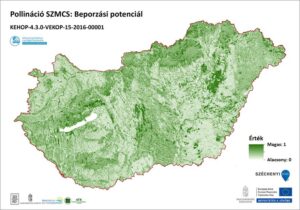
Map of pollination potential in Hungary (Source: http://termeszetem.hu/hu)
During the development of Hungary’s National Biodiversity Strategy until 2030 (the final draft is yet to be approved), pollinators has emerged as a fundamental issue to be dealt with. Therefore, one of the 19 main objectives of the draft National Biodiversity Strategy until 2030 is dedicated to assess the status of pollinators, halt their decline and maintain and restore pollination as a crucial ecosystem service. In order to achieve this objective, actions and relevant indicators are grouped around the following three targets:
- increase knowledge on the native populations, trends in population changes of pollinator species, their causes and consequences and the ecological needs of the species;
- eliminate the causes of pollinator decline;
- improve the living conditions of pollinators.
Hungary – through the work of the Hungarian ELKH Centre for Ecological Research – actively takes part in the EU-funded programme called ‘Strengthening Pollinator Recovery through Indicators and monitoring’ (SPRING), which was launched in May 2021 with the aim to identify European pollinators more efficiently and systematically.
In 2020 a strategic agreement ‘You can BEE more’ was signed by the Agricultural Marketing Centre, the Hungarian Beekeeping Association and Takarékbank to conduct a joint social campaign to raise awareness of the ecological importance of bees and to improve the economic situation and competitiveness of the beekeeping sector³. The Hungarian Museum of Natural History has also joined the large-scale education campaign by opening Europe’s largest exhibition on bees and other pollinators.
The so-called Breakfast with Honey and the Honey Every Day events are organized every year (except in the last two years of the covid pandemic) targeting primary and secondary school students, with the aim to raise awareness of the importance of pollinators and promote honey consumption.
As a measure of the Hungarian National Beekeeping Programme, this year the Hungarian Beekeeping Association provided support for the purchase and planting of tree seedlings and flowering shrubs that provide food and nesting place for pollinators.
On the International Biodiversity Day in 2022 the Ministry of Agriculture launched the initiative called ‘Landrace and lifestock breed of the year’⁴ in order to highlight the importance of preserving agrobiodiversity, including our unique and diverse genetic values. In 2022 a native fruit (pear) landrace and the Pannonian bee have been selected, as these varieties are closely linked through pollination.
In recent years there have been numerous initiatives by national parks, municipalities and NGOs to raise awareness for pollinators, such as:
- educational websites on pollinators, such as: https://www.bfnp.hu/hu/oldal/beporzas
- exhibitions on pollinators

The permanent exhibition at Kis-Balaton Visitor Centre of the Balaton-felvidéki National Park has an interactive part on pollination
- establishment of nature trails related to pollinators
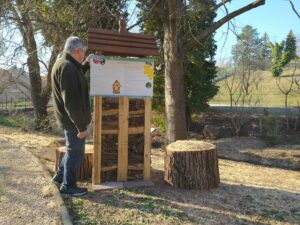
Information about pollinators at the nature trail around the headquarters of the Balaton-felvidéki National Park Directorate in Csopak
- education activities for the general public (e.g. bee-friendly walks)
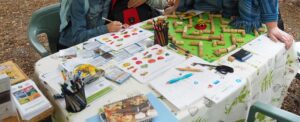
Games and talks about pollinators at awareness-raising events
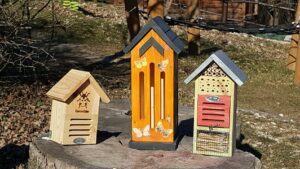
Insect hotels and bee towers at the Duna-Ipoly National Park
- publications and awareness-raising materials about pollinators
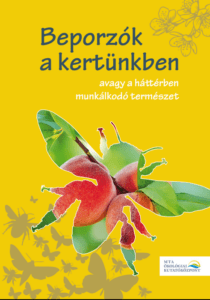
Example of a publication on pollinators: Pollinators in our garden (ELKH Centre for Ecological Research)
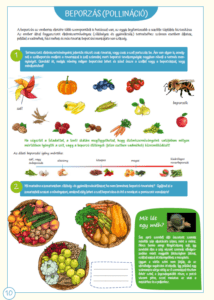
Workbook for kids on pollinators
² https://termeszetem.hu/en/ecosystem-services/national-ecosystem-map-of-hungary
³ https://www.tehetszmehtobbet.hu/
⁴ https://www.biodiv.hu/hu/genmegorzes/az-ev-tajfajtaja-ev-haszonallata
What are Hungary’s expectations for the future?
In order to increase knowledge about pollinators, we expect to strengthen their monitoring, therefore a monitoring programme for wild pollinators would be important in the framework of the National Biodiversity Monitoring System, in line with the EU pollinator monitoring scheme.
We believe that facilitating communication and collaboration among relevant stakeholders and sectors is important not only to address knowledge and data gaps in pollinator status assessment but also other activities related to tackle impacts of pollinator decline and associated risks as well as to better protect pollinators.
Raising and increasing awareness about the importance of pollinators and their benefits and encouraging actions across sectors can help to familiarize the whole society with the importance of the healthy functioning of ecosystems and their services.
Contact
For more information reach out to the Biodiversity and Gene Conservation Department of the Ministry of Agriculture (biodiv@am.gov.hu).
